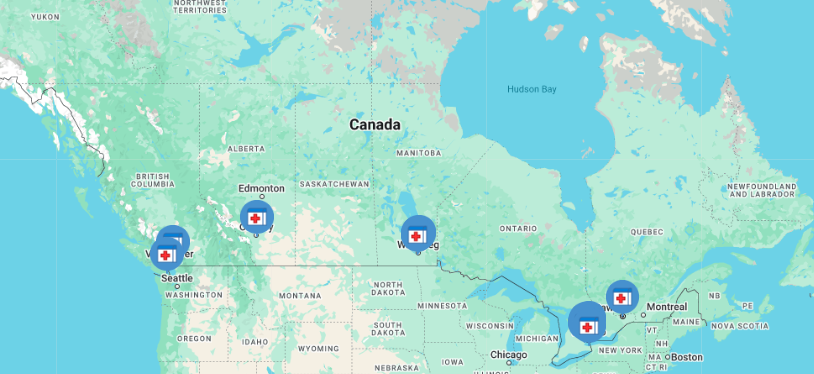GUIDED MENOPAUSE PATHWAY
This 6-week one-on-one program is designed to support your mental health during perimenopause and menopause. Through personalized therapy sessions, education, and coping tools, you’ll gain the skills to manage mood shifts, anxiety, irritability, and life transitions with clarity and confidence.
You’ll also receive access to a self-assessment and a curated mental health resource library.
STABILIZE MOOD CHANGES
SUPPORT HORMONAL TRANSITIONS
NAVIGATE LIFE STRESSORS
REGAIN A SENSE OF BALANCE
About the Program
Reduced anxiety, improved mood, increased self-awareness, and better ability to manage stress and emotional fluctuations.
DETAILS:

AWARENESS & ASSESSMENT
Begin by exploring how hormonal changes and life stressors are impacting your mental health. With your therapist, you’ll reflect on emotional patterns, symptoms, and challenges unique to your experience of menopause or perimenopause.
Together, you’ll set personalized goals to support mental and emotional balance.

COPING SKILLS & EMOTIONAL REGULATION
You’ll learn evidence-based tools to manage symptoms such as mood swings, irritability, anxiety, and sleep disturbances. Your therapist will guide you in practices like emotional regulation, boundary-setting, cognitive reframing, and mindfulness. Self-compassion and body acceptance are core elements of this phase.

LONG-TERM WELLNESS & CONFIDENCE
In the final phase, you’ll create a practical and sustainable wellness plan tailored to your long-term needs. This includes managing ongoing symptoms, preventing burnout, and embracing this life stage with strength and clarity. You’ll leave the program feeling more grounded and equipped to navigate change.

AWARENESS & ASSESSMENT
Begin by exploring how hormonal changes and life stressors are impacting your mental health. With your therapist, you’ll reflect on emotional patterns, symptoms, and challenges unique to your experience of menopause or perimenopause.
Together, you’ll set personalized goals to support mental and emotional balance.

COPING SKILLS & EMOTIONAL REGULATION
You’ll learn evidence-based tools to manage symptoms such as mood swings, irritability, anxiety, and sleep disturbances. Your therapist will guide you in practices like emotional regulation, boundary-setting, cognitive reframing, and mindfulness. Self-compassion and body acceptance are core elements of this phase.

LONG-TERM WELLNESS & CONFIDENCE
In the final phase, you’ll create a practical and sustainable wellness plan tailored to your long-term needs. This includes managing ongoing symptoms, preventing burnout, and embracing this life stage with strength and clarity. You’ll leave the program feeling more grounded and equipped to navigate change.
Meet Your Therapist
Understanding and managing the mental health dimensions of menopause is crucial for maintaining overall well-being. Menopause can lead to symptoms like anxiety, irritability, mood swings, and difficulty concentrating. Long-term hormonal changes can contribute to more serious health issues, such as depression, anxiety disorders, and cognitive decline. Techniques like regular exercise, mindfulness practices, and seeking social support can help mitigate these effects, enhancing overall quality of life during this transitional period.
– Stacey

Stacey Stemplowski, RP
Not sure where to start?
Try a self-assessment.
Our self-assessment is based on the Menopause Rating Scale, a widely used and accepted tool developed to measure the presence and severity of psychological and other menopausal symptoms. Use of the assessment is anonymous. Our online assessment includes guidance regarding scoring as well as suggested follow-up based on the outcome of the assessment.
Always keep in mind that there are a variety of factors that can influence the reliability of the assessment, that your individual scores may vary over time, and, above all, that it is an assessment rather than a diagnostic tool. As such, this and similar self-guided assessments are not substitutes for professional guidance and should never be considered definitive.
MENOPAUSE MANAGEMENT RESOURCES
The following list of resources is provided solely for educational purposes. WELL Mental Health & Wellness is not affiliated with any third party content providers or sources.
Commonly Asked Questions
What are the common mental health symptoms of menopause?
Common mental health symptoms of menopause include mood swings, anxiety, irritability, depression, fatigue, and difficulty concentrating. These symptoms are often linked to hormonal fluctuations affecting emotional well-being and cognitive function.
Can I overcome these symptoms on my own?
While some individuals can manage menopause symptoms independently through lifestyle changes, seeking professional help significantly enhances coping strategies. Support from healthcare providers can guide effective management of symptoms and improve overall quality of life.
What types of therapy are recommended to deal with these symptoms?
Recommended therapies for managing menopause symptoms include cognitive behavioral therapy (CBT), mindfulness meditation, and counseling. These approaches can help alleviate emotional distress and improve mental health.
Canada's largest network of therapists.
Our diverse network of qualified mental health professionals can support you with many mental health concerns. We believe that excellent client-therapist relationships are crucial for effective support, which is why you can choose your own therapist, and change therapists, at any time.

Supporting you, wherever you are.
As a part of the WELL Health Medical Centre team, we offer in-person therapy at select WELL Clinics. The majority of WELL Mental Health and Wellness services are covered by private insurance and corporate benefits plans.
Available at select WELL Clinics in British Columbia, Alberta, Ontario, and Manitoba.



